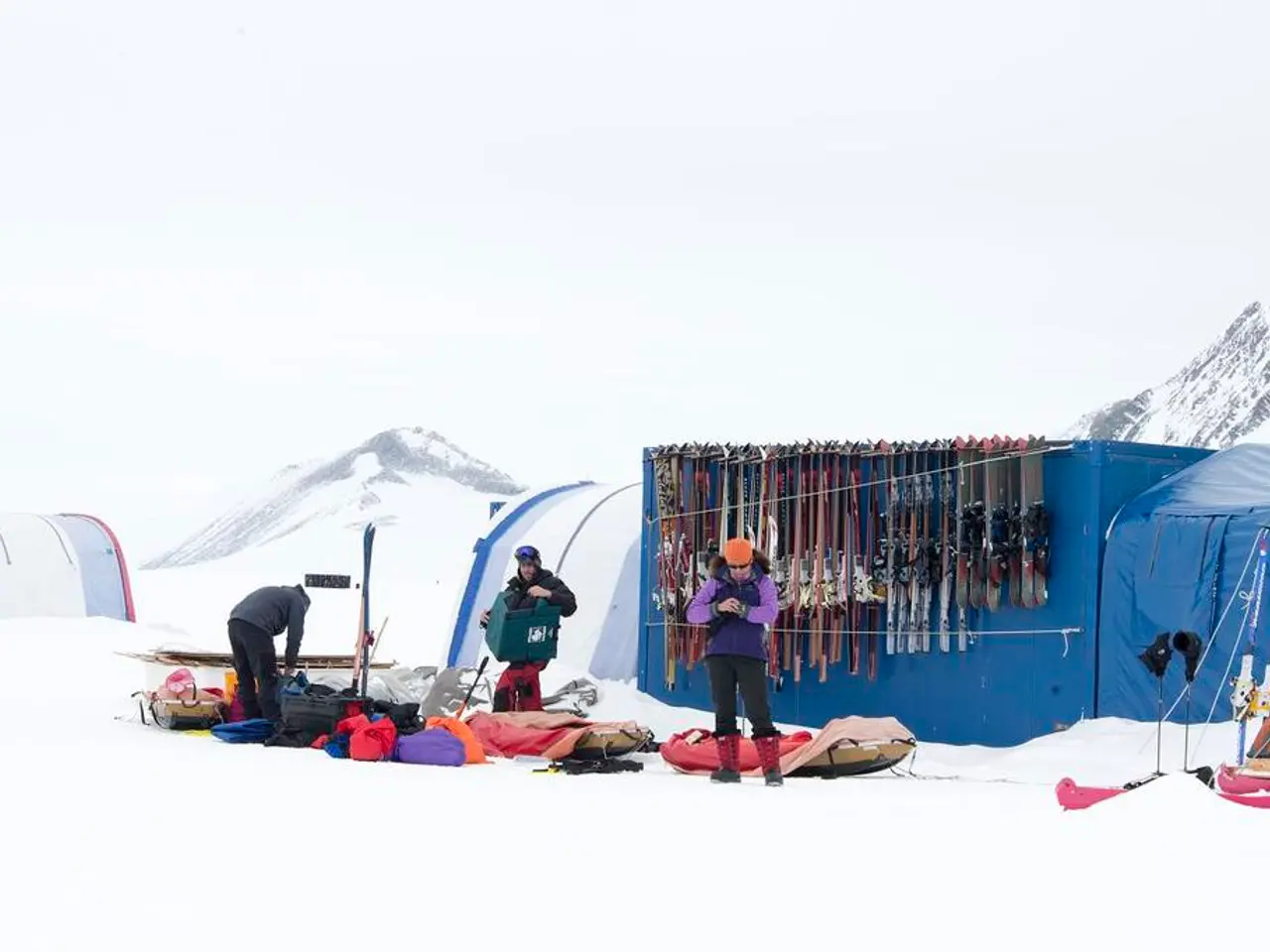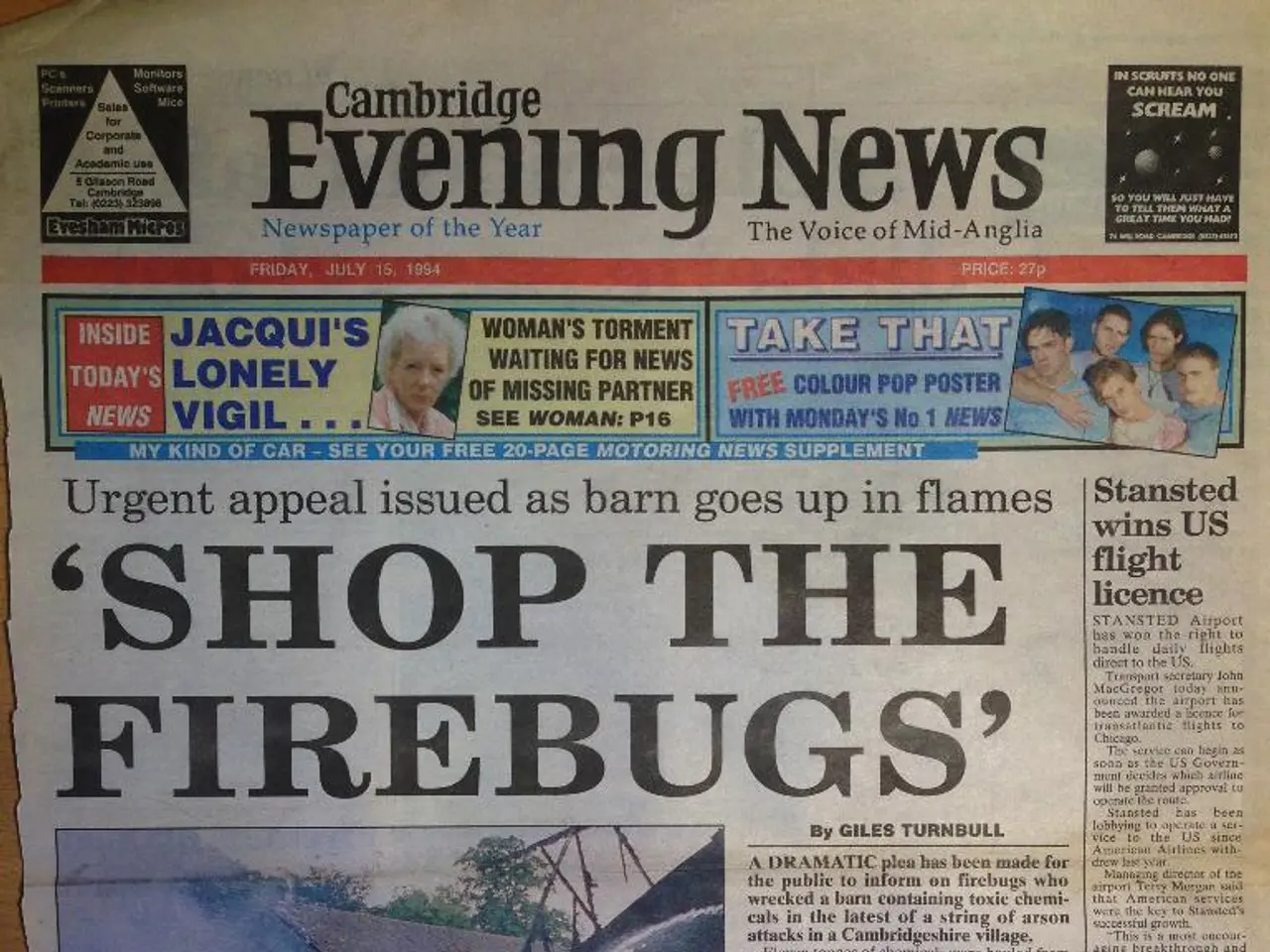Ski Accident Sparks Early-seasons Safety Alert
In the heart of Aotearoa's North Island, the Mountain Safety Council (MSC) is urging backcountry skiers to approach their trips with added care and preparation, following a tragic incident on Mt Ruapehu in June 2022.
The incident, which claimed the life of 64-year-old Ian Howat from Wellington, underscores the importance of skill, experience, and appropriate equipment in mitigating the risks posed by the mountain's unique early season conditions.
On June 24, 2022, Ian and a fellow club member set out for Skyline Ridge above the Pinnacles, with Ian planning to ski his way down. However, when he failed to arrive at the lodge, a search and rescue operation was promptly activated.
Coroner Katharine Greig concluded that Ian fell in rocky terrain while skiing in icy snow conditions, sustaining a fatal chest injury. The coroner's inquiry into the accident resulted in several key safety recommendations for early winter alpine skiing in the area.
These include recognizing the serious sliding hazard posed by ice on ascents and descents, requiring relevant skills, experience, and appropriate equipment. Always having a credible Plan B in case conditions become unexpectedly hazardous is also crucial.
Thoroughly checking current conditions by reading snow reports, weather forecasts, and the New Zealand Avalanche Advisory before and during trips is another essential precaution. Travelling with at least one partner, especially when in areas not patrolled or swept by ski patrol, is also strongly advised.
Maintaining a critical awareness of environmental factors such as surface conditions, weather, and group dynamics, even if familiar with the terrain, is also vital. The coroner endorsed MSC's advice in this regard.
The coroner also highlighted the importance of wearing appropriate helmets when skiing in variable conditions or terrain with exposed rocks, though this was not formally mandated as the fatality was not due to a head injury.
In addition, the coroner endorsed MSC's recommendations to travel with a partner who is also skiing or snowboarding and to check the weather forecast and NZ Avalanche Advisory to understand the current conditions on Mt Ruapehu.
The MSC report suggests that if Ian Howat had been skiing with his companion, there could have been more opportunities for shared decision-making. The report also emphasizes the importance of having a back-up plan should conditions become hazardous.
In North Island mountains, crampons and an ice axe are often needed due to the unique challenges of limited snow and icy conditions. The pair separated at Skyline Ridge, with Ian skiing down and his companion going on foot to the bottom of the ridge. Although the route is within the Whakapapa Ski Field, the field had not yet opened for the season, making it a backcountry area.
Our hearts go out to Ian's family and friends during this difficult time. This incident serves as a stark reminder of the dangers that can lurk in the backcountry, even for experienced skiers like Ian, who was a long-time member of the Tararua Tramping Club and skied on Mt Ruapehu regularly.
The photo credit for this article goes to Shaun Barnett for the image of Mt Ruapehu. The MSC encourages all backcountry skiers to take extra care during early winter, following this tragic incident on Mt Ruapehu. Sharing avalanche observations publicly is also encouraged to improve overall safety awareness in the alpine community.
- General news reports and weather forecasting services in Aotearoa should consistently highlight the unique early season conditions on Mt Ruapehu, emphasizing the sliding hazard posed by ice for alpine skiers, to help mitigate such accidents.
- In addition to promoting the importance of skill, experience, and appropriate equipment, sports news outlets should also cover the crucial aspect of having a back-up plan and traveling with a companion when engaging in backcountry skiing activities on Mt Ruapehu.







